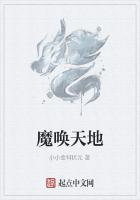The worship of Adonis was practised by the Semitic peoples of Babylonia and Syria, and the Greeks borrowed it from them as early as the seventh century before Christ. The true name of the deity was Tammuz: the appellation of Adonis is merely the Semitic Adon, lord, a title of honour by which his worshippers addressed him. But the Greeks through a misunderstanding converted the title of honour into a proper name. In the religious literature of Babylonia Tammuz appears as the youthful spouse or lover of Ishtar, the great mother goddess, the embodiment of the reproductive energies of nature. The references to their connexion with each other in myth and ritual are both fragmentary and obscure, but we gather from them that every year Tammuz was believed to die, passing away from the cheerful earth to the gloomy subterranean world, and that every year his divine mistress journeyed in quest of him to the land from which there is no returning, to the house of darkness, where dust lies on door and bolt. During her absence the passion of love ceased to operate: men and beasts alike forgot to reproduce their kinds: all life was threatened with extinction. So intimately bound up with the goddess were the sexual functions of the whole animal kingdom that without her presence they could not be discharged. A messenger of the great god Ea was accordingly despatched to rescue the goddess on whom so much depended. The stern queen of the infernal regions, Allatu or Eresh-Kigal by name, reluctantly allowed Ishtar to be sprinkled with the Water of Life and to depart, in company probably with her lover Tammuz, that the two might return together to the upper world, and that with their return all nature might revive.
Laments for the departed Tammuz are contained in several Babylonian hymns, which liken him to plants that quickly fade. He is A tamarisk that in the garden has drunk no water, Whose crown in the field has brought forth no blossom.
A willow that rejoiced not by the watercourse, A willow whose roots were torn up.
A herb that in the garden had drunk no water.
His death appears to have been annually mourned, to the shrill music of flutes, by men and women about midsummer in the month named after him, the month of Tammuz. The dirges were seemingly chanted over an effigy of the dead god, which was washed with pure water, anointed with oil, and clad in a red robe, while the fumes of incense rose into the air, as if to stir his dormant senses by their pungent fragrance and wake him from the sleep of death. In one of these dirges, inscribed Lament of the Flutes for Tammuz, we seem still to hear the voices of the singers chanting the sad refrain and to catch, like far-away music, the wailing notes of the flutes:
At his vanishing away she lifts up a lament, 'Oh my child!' at his vanishing away she lifts up a lament;
'My Damu!' at his vanishing away she lifts up a lament.
'My enchanter and priest!' at his vanishing away she lifts up a lament, At the shining cedar, rooted in a spacious place, In Eanna, above and below, she lifts up a lament.
Like the lament that a house lifts up for its master, lifts she up a lament, Like the lament that a city lifts up for its lord, lifts she up a lament.
Her lament is the lament for a herb that grows not in the bed, Her lament is the lament for the corn that grows not in the ear.
Her chamber is a possession that brings not forth a possession, A weary woman, a weary child, forspent.
Her lament is for a great river, where no willows grow, Her lament is for a field, where corn and herbs grow not.
Her lament is for a pool, where fishes grow not.
Her lament is for a thickest of reeds, where no reeds grow.
Her lament is for woods, where tamarisks grow not.
Her lament is for a wilderness where no cypresses (?) grow.
Her lament is for the depth of a garden of trees, where honey and wine grow not.
Her lament is for meadows, where no plants grow.
Her lament is for a palace, where length of life grows not.
The tragical story and the melancholy rites of Adonis are better known to us from the descriptions of Greek writers than from the fragments of Babylonian literature or the brief reference of the prophet Ezekiel, who saw the women of Jerusalem weeping for Tammuz at the north gate of the temple.
Mirrored in the glass of Greek mythology, the oriental deity appears as a comely youth beloved by Aphrodite. In his infancy the goddess hid him in a chest, which she gave in charge to Persephone, queen of the nether world. But when Persephone opened the chest and beheld the beauty of the babe, she refused to give him back to Aphrodite, though the goddess of love went down herself to hell to ransom her dear one from the power of the grave. The dispute between the two goddesses of love and death was settled by Zeus, who decreed that Adonis should abide with Persephone in the under world for one part of the year, and with Aphrodite in the upper world for another part. At last the fair youth was killed in hunting by a wild boar, or by the jealous Ares, who turned himself into the likeness of a boar in order to compass the death of his rival. Bitterly did Aphrodite lament her loved and lost Adonis.
In this form of the myth, the contest between Aphrodite and Persephone for the possession of Adonis clearly reflects the struggle between Ishtar and Allatu in the land of the dead, while the decision of Zeus that Adonis is to spend one part of the year under ground and another part above ground is merely a Greek version of the annual disappearance and reappearance of Tammuz.












